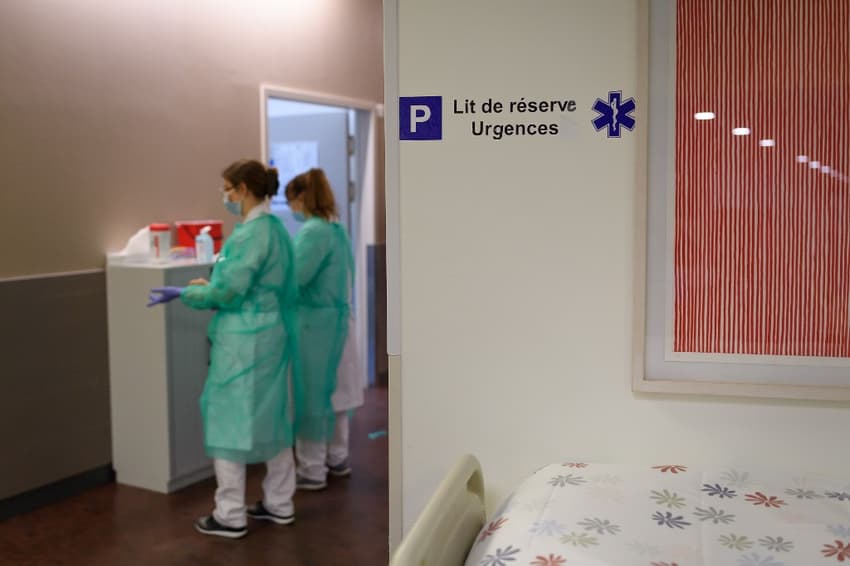EXPLAINER: Why does Switzerland want to test former coronavirus patients?

Swiss health authorities would like to know whether those people who recover from Covid-19 become immune to the virus and resistant to new infection and if so for how long.
How many people in Switzerland have recovered from coronavirus?
The official figure, based on the number of people who were tested, found to be positive, and then recovered, is 897.
But this number doesn’t include people who had mild symptoms but were not tested, or did not seek medical help, or perhaps were asymptomatic, meaning their infection was so mild that they didn't even know they had Covid-19. So, the real number of coronavirus cases in Switzerland is much higher than the official one.
Globally, at least 85,000 people are officially cured of the coronavirus.
Why does Switzerland want to test these former patients?
Swiss health authorities are curious to find out whether people who were once infected with Covid-19 become immune to the virus.
Swiss researchers are currently checking the reliability of certain tests which currently exist on the market. These tests can reveal whether a person has antibodies to the coronavirus and is therefore immune.
Once the most effective test has been selected, the authorities will try to get it as soon as possible in as large a quantity as possible, according to Daniel Koch, head of the communicable diseases division of the Federal Office of Public Health (FOPH).
READ MORE: What you need to know about Switzerland’s coronavirus testing regime
What do we know about the post-coronavirus immunity?
Not much at this point, since this is a new disease.
However, researchers believe that once a person becomes infected, they develop resistance to this virus and can no longer transmit it to others. If a lot of people become resistant, it’s called ‘herd immunity’.
"It is believed, based on our knowledge of other respiratory viruses, especially the flu, that people develop immunity after having an infection”, "said Valérie D'Acremont, infectious disease specialist at Unisanté Lausanne, which is part of the city’s University Hospital (CHUV).
She added that “the intensity of immunity probably depends on the intensity of the infection and the ability of the immune system to respond”.
Will we have anti-coronavirus medications or vaccines in the near future?
Scientists from Basel are among researchers from around the world who are working on suitable drugs. They tested 678 million substances and identified promising candidates.
Clinical trials are also under way on Remdesivir, a drug used to treat Ebola. But its efficacy against Covid-19 is not yet established.
So no antiviral medication against coronavirus exists at this point and, while scientists are also working on a vaccine, developing one will still take time.
READ MORE: Switzerland opens first drive-through coronavirus testing centre
Comments
See Also
How many people in Switzerland have recovered from coronavirus?
The official figure, based on the number of people who were tested, found to be positive, and then recovered, is 897.
But this number doesn’t include people who had mild symptoms but were not tested, or did not seek medical help, or perhaps were asymptomatic, meaning their infection was so mild that they didn't even know they had Covid-19. So, the real number of coronavirus cases in Switzerland is much higher than the official one.
Globally, at least 85,000 people are officially cured of the coronavirus.
Why does Switzerland want to test these former patients?
Swiss health authorities are curious to find out whether people who were once infected with Covid-19 become immune to the virus.
Swiss researchers are currently checking the reliability of certain tests which currently exist on the market. These tests can reveal whether a person has antibodies to the coronavirus and is therefore immune.
Once the most effective test has been selected, the authorities will try to get it as soon as possible in as large a quantity as possible, according to Daniel Koch, head of the communicable diseases division of the Federal Office of Public Health (FOPH).
READ MORE: What you need to know about Switzerland’s coronavirus testing regime
What do we know about the post-coronavirus immunity?
Not much at this point, since this is a new disease.
However, researchers believe that once a person becomes infected, they develop resistance to this virus and can no longer transmit it to others. If a lot of people become resistant, it’s called ‘herd immunity’.
"It is believed, based on our knowledge of other respiratory viruses, especially the flu, that people develop immunity after having an infection”, "said Valérie D'Acremont, infectious disease specialist at Unisanté Lausanne, which is part of the city’s University Hospital (CHUV).
She added that “the intensity of immunity probably depends on the intensity of the infection and the ability of the immune system to respond”.
Will we have anti-coronavirus medications or vaccines in the near future?
Scientists from Basel are among researchers from around the world who are working on suitable drugs. They tested 678 million substances and identified promising candidates.
Clinical trials are also under way on Remdesivir, a drug used to treat Ebola. But its efficacy against Covid-19 is not yet established.
So no antiviral medication against coronavirus exists at this point and, while scientists are also working on a vaccine, developing one will still take time.
READ MORE: Switzerland opens first drive-through coronavirus testing centre
Join the conversation in our comments section below. Share your own views and experience and if you have a question or suggestion for our journalists then email us at [email protected].
Please keep comments civil, constructive and on topic – and make sure to read our terms of use before getting involved.
Please log in here to leave a comment.